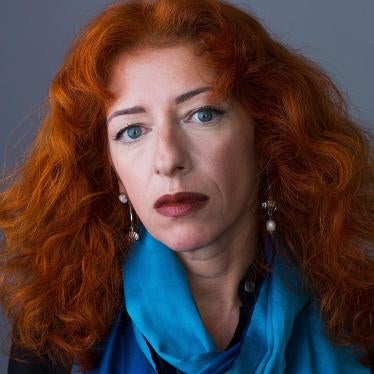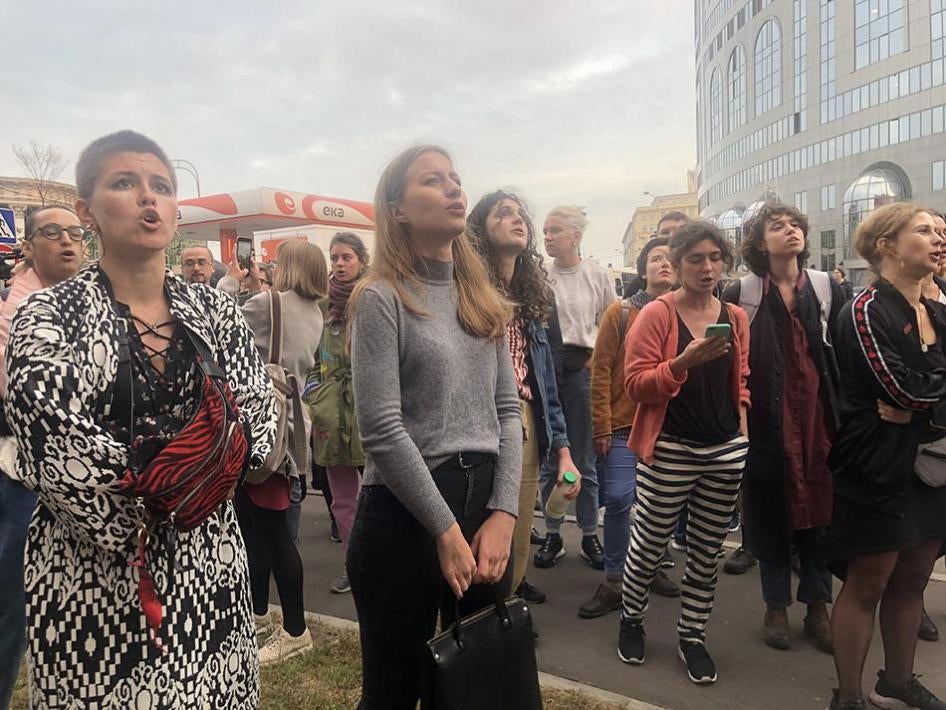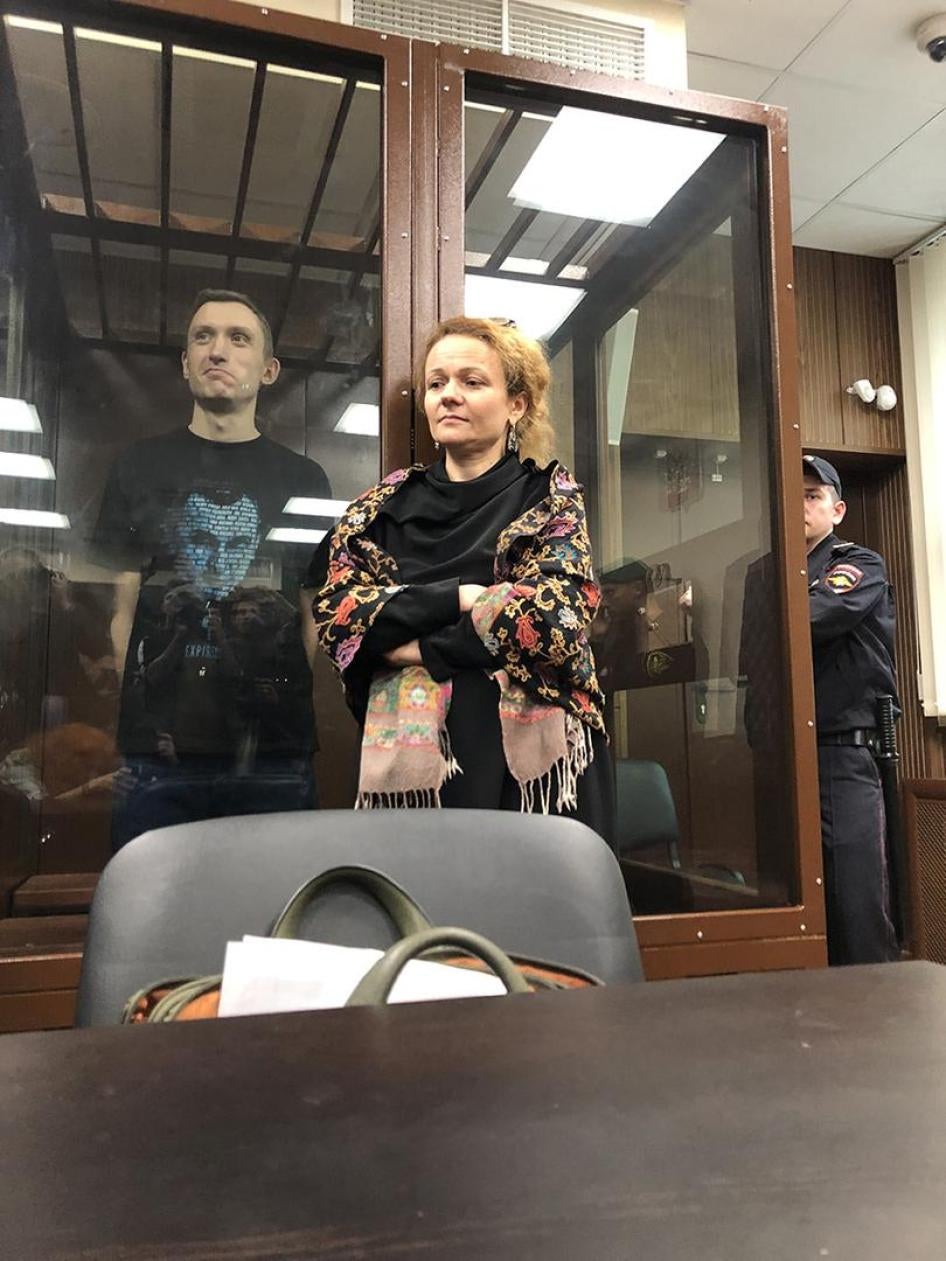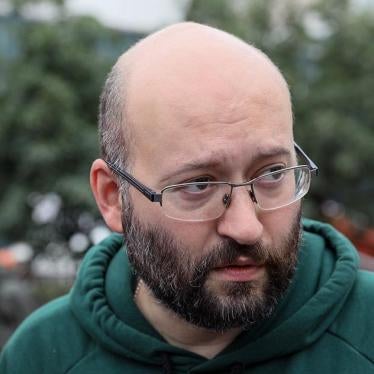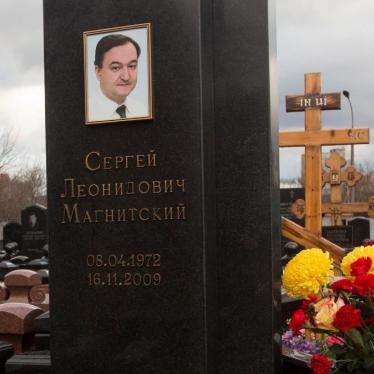Today, I stood in a Moscow court as it sentenced Konstantin Kotov, a 34-year old software engineer, to four years in prison. His crime? Kotov dared to take part in several peaceful but unsanctioned protests this spring and summer.
Since 2014, Russian law mandates criminal sanctions for participating in more than two unauthorized public gatherings within six months.
Kotov protested in Moscow against the exclusion of viable opposition candidates from the city legislative assembly race. Also in recent months, Kotov protested against the war in Ukraine and stood up for people who were prosecuted on politically motivated charges, including Crimean Tatars, whom Russian authorities prosecuted on bogus terrorism charges. The authorities subjected Kotov to administrative sanctions four times for his peaceful protest activity.
Then police arrested him, again, at the August 10 election-related “protest walk.” He spent two days behind bars, on administrative charges. Upon release, he was re-arrested as the authorities launched a criminal case against him, eager to silence someone who speaks out as much as he does.
Authorities spent only three days investigating his case before rushing it to this ridiculous trial.
Until now, the only person who had been convicted and served a sentence for repeated illegal protesting was Ildar Dadin. Sentenced to three years in 2015, Dadin, who alleged he was tortured in prison, was released in 2017 after Russia’s Constitutional Court ruled the provision on criminal liability for repeatedly protesting should not be applied if protesters did not constitute a threat to society.
To justify prosecuting Kotov, authorities argued he had made calls “for unlawful actions, thereby creating a real threat of causing harm to citizens’ health, property of physical persons and legal entities, public order, public security, and other constitutionally protected values.” They also insisted Kotov’s actions evidenced “contempt for constitutional values ... governmental power bodies, and the society as a whole.”
Before the verdict, Kotov said: “I think it’s not me who is on trial but rather the rights to freedom of speech and freedom of assembly. In Russia, there are no independent political parties, no fair elections, so only one option remains – to go to the streets and shout your demands. But even that is forbidden.”
After the verdict, a spontaneous rally erupted outside and inside the courthouse, with people chanting, “For shame! Freedom to Kotov! Freedom to political prisoners!” No one should have to spend a single minute behind bars for peacefully standing on the street to express their conscience. The Russian justice system, however, seems to think Kotov should spend 2,102,400 minutes for it. For shame indeed.
